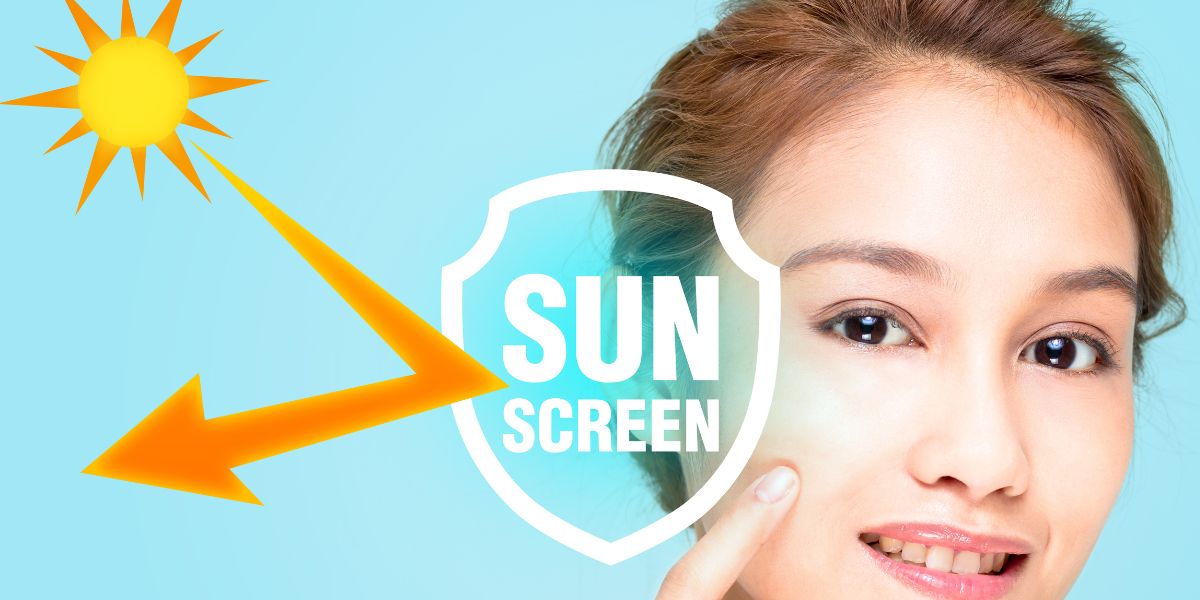Meghan Trainor Regrets Getting Botox Injections, Now Struggling to Smile
Meghan Trainor regrets having become addicted to Botox injections.

Kapanlagi.com - Sunscreen is one of the essential components in a skincare routine that should not be overlooked. With the increasing awareness of the dangers of ultraviolet (UV) rays that can cause premature aging, skin cancer, and other dermatological issues, using sunscreen has become a necessity for many people.
However, despite its incredible benefits, not everyone can use this product without experiencing side effects. Some individuals may experience allergic reactions or irritation, which can make them hesitant to protect their skin from the sun.
It is important to understand that negative reactions to sunscreen can be caused by various factors, including the chemicals contained in the product, skin type, and individual sensitivity. In this article, we will discuss the characteristics of people who are unsuitable for using sunscreen, as well as the factors that influence these reactions. Stay tuned for complete information as reported by Kapanlagi.com from various sources, Thursday (5/12).
Sunscreen, or sunblock, is the invisible hero in our skincare routine, serving to protect the skin from the harmful attacks of ultraviolet (UV) rays emitted by the sun. By preventing skin damage that can lead to premature aging, hyperpigmentation, and even skin cancer, sunscreen works in two sophisticated ways: first, by absorbing UV rays that are converted into harmless heat, and second, by blocking UV rays through a physical barrier. Known by its SPF (Sun Protection Factor) value, the higher this number, the more optimal the protection. However, it is important to remember that not all sunscreens are suitable for all skin types; some people may have allergic reactions to certain ingredients. So, find the right sunscreen to keep your skin protected and healthy!
Incompatibility with sunscreen can be caused by several factors, such as sensitivity to active chemical ingredients, allergies to fragrances, and formulations that do not match skin types. Oily products can clog pores on oily skin, while interactions with other skincare products and environmental conditions also contribute.
For those with certain skin conditions, the risk of irritation increases. Therefore, it is important to choose sunscreen from trusted brands and check the expiration date to avoid side effects.
Recognizing the signs of sunscreen incompatibility is important for skin health. Symptoms such as irritation, redness, itching, rashes, spots, swelling, dry skin, peeling, new acne, discoloration, and a burning sensation after application may indicate that the product is unsuitable.
If the skin becomes oilier or experiences photosensitivity reactions, discontinue use immediately and consult a dermatologist for the right solution.
If you experience issues with sunscreen, stop using it and clean the irritated area with a gentle cleanser. Use a cold compress to reduce itching and swelling, and apply a soothing moisturizer like aloe vera.
If symptoms are severe, consult a doctor for antihistamines. Identify the ingredients causing the reaction and consider switching to a gentler mineral sunscreen. Conduct a patch test before trying new products and consult a dermatologist if problems persist.
Also consider alternative UV protection such as protective clothing and repair the skin barrier with the right products. Every skin is different, so be patient in finding a suitable solution.
Choosing the right sunscreen is very important to protect the skin from UV rays without irritation. Know your skin type (oily, dry, or sensitive) to select the appropriate formula. Choose a sunscreen with a minimum SPF of 30 and broad-spectrum protection from UVA and UVB rays.
Consider comfortable formulas such as lotions or sprays, as well as gentle active ingredients like zinc oxide or titanium dioxide for sensitive skin. If you are prone to acne, choose "non-comedogenic" products and fragrance-free options. For water activities, opt for water-resistant formulas and remember to reapply. Read reviews and conduct a patch test before use.
Check the expiration date and consult a dermatologist if necessary. The process of finding the ideal sunscreen may take time, so be patient and consistent in its use.
For those who are not suitable with sunscreen or want additional protection from UV rays, there are several interesting alternatives. Consider UV protective clothing with high UPF, wide-brimmed hats, and UV-protective sunglasses. UV umbrellas and shade from trees or tents are also effective when engaging in outdoor activities.
Supplements and foods rich in antioxidants, such as berries and green tea, can strengthen protection from within. For indoor protection, use UV-protective window films and skincare products with antioxidants.
Consult a dermatologist if there are ongoing issues. Remember, these alternatives should be used as a complement to sunscreen for maximum protection!
(kpl/rao)
Cobain For You Page (FYP) Yang kamu suka ada di sini,
lihat isinya
Meghan Trainor regrets having become addicted to Botox injections.
Discover seven attitudes that can enhance a woman's attractiveness in the eyes of men, not just from a physical standpoint! This article reveals secrets that will make you even more charming and captivating.
Dewi Rezer, a renowned actress and presenter, recently spoke about experiencing issues with the area under her eyes that made her feel less confident.
An actress who seems to not age at all.
In addition, Rina is also considering undergoing additional procedures on her nose.
The cost of eyebag surgery is revealed to be quite large. When asked if it was endorsed by the hospital...
Nikita Willy, a beautiful artist, always attracts the attention of her fans not only with her appearance in fashion and makeup.
Ayu Ting Ting does this to ensure that her facial skin remains beautiful on her special day.
Rachel Goddard shares a face mask recipe that uses one food ingredient, with her face looking healthy and acne-free.
The result is perfect with just a cushion worth Rp 200 thousand, here's a natural makeup tutorial from Azizah Salsha.
Arya Saloka and Amanda Manopo apparently underwent beauty treatments at the same clinic, but arrived separately.
Dea Ananda shows her bare face without makeup. She also admits that she doesn't use botox or filler. Dea Ananda's youthful appearance has earned her praise.